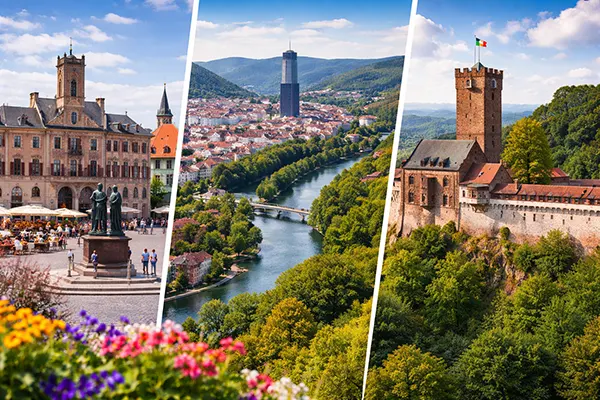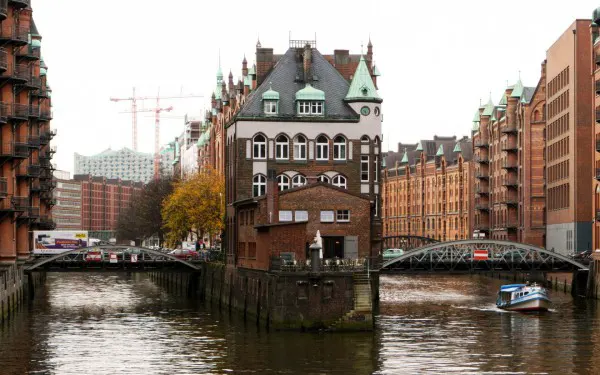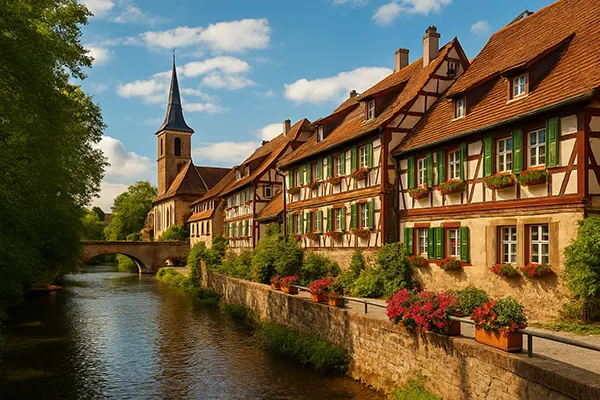
Themed Hotels in Germany: Medieval Castles, Ships and Industrial Lofts
Germany, with its rich cultural heritage and diverse architecture, offers travellers a unique opportunity to experience themed accommodations far beyond the standard hotel stay. From sleeping like royalty in a medieval castle to waking up aboard a repurposed ship or relaxing in an urban industrial loft, the options are as exciting as they are authentic. As of February 2025, several properties across the country continue to lead the way in delivering unforgettable overnight experiences rooted in storytelling and originality.
Stay Like Royalty: Medieval Castle Hotels
For travellers fascinated by the romance and mystery of the Middle Ages, Germany’s castle hotels provide a truly immersive getaway. Locations like Burg Hotel Colmberg in Bavaria and Schloss Hornberg in the Black Forest region invite guests to sleep within stone walls that date back centuries. These castles are not merely replicas — they are original medieval structures restored to include modern comforts without compromising their historic charm.
Burg Colmberg, for example, dates back to the 13th century and offers rooms decorated with antique furniture, wooden beams and panoramic views of the surrounding Franconian landscape. The castle’s gourmet restaurant serves traditional Bavarian cuisine with a noble twist. Similarly, Schloss Hornberg provides a regal retreat, complete with knightly suits of armour and landscaped gardens perfect for a morning stroll.
Most castle hotels cater to weddings, anniversaries and family celebrations, often featuring banquet halls and event services to enhance the historic experience. Despite the ancient backdrop, amenities like Wi-Fi, underfloor heating and en-suite bathrooms ensure guests enjoy both authenticity and comfort.
Noteworthy Castle Hotels Across Germany
Beyond Colmberg and Hornberg, visitors should consider Schloss Lieser on the Moselle River. Recently renovated into a luxury hotel, it merges baroque architecture with top-tier hospitality under the Marriott Autograph Collection. Meanwhile, Hotel Schloss Eberstein in Baden-Württemberg is renowned for its vineyard and Michelin-starred restaurant.
Another top pick is Hotel Burg Trendelburg in Hesse, a fairy-tale fortress surrounded by forests and legends of Rapunzel. Guests can climb the tower, explore the ancient walls, and enjoy candlelit dinners in its stone cellar restaurant.
These historic properties are not only places to stay but cultural landmarks preserving German heritage. Bookings tend to fill quickly, especially in spring and autumn, so early reservations are recommended for travellers seeking this unique blend of history and hospitality.
Sail into Dreams: Ship Hotels and Nautical Accommodation
For a stay with a view of the water and a sense of maritime adventure, Germany’s ship hotels provide an unforgettable escape. Whether docked on the Elbe River or floating in Berlin’s urban canals, these accommodations combine nautical aesthetics with urban convenience. As of early 2025, demand for floating hotels is on the rise, especially among younger tourists and international visitors looking for alternative stays.
One standout example is Hotelboot Perle in Hamburg, a stationary boat hotel offering compact yet stylish cabins with porthole views, a shared sundeck and close proximity to the city’s popular St. Pauli district. The vessel maintains its original maritime character while providing comfortable beds, modern bathrooms, and self-service breakfast onboard.
In Berlin, Eastern Comfort Hostelboat offers both private cabins and hostel-style dorms aboard two permanently moored riverboats on the Spree. Located between the lively districts of Friedrichshain and Kreuzberg, it’s a perfect base for travellers seeking both serenity and nightlife. With hammocks on deck and a bar floating on the water, it’s a truly Berlin-style stay.
Floating Gems for Travellers
Beyond the major cities, smaller towns like Stralsund and Bremen also feature ship hotels catering to seafarers at heart. The Hotel Nordstern in Bremerhaven is an example of luxury combined with marine history, offering harbour views and easy access to the German Maritime Museum.
Some hotels also focus on sustainability, such as the Greenboat Floating Hotel on Lake Müritz. It offers solar-powered amenities and eco-friendly materials, making it an excellent choice for environmentally conscious guests.
These ship hotels often double as tourist attractions, providing guests with stories of sea trade, naval design, and river-based city life. Though space can be limited, the novelty and location more than make up for it.

Urban Style: Industrial Lofts and Factory-Themed Hotels
Germany’s industrial past has been stylishly reimagined in a number of loft-style hotels and repurposed factories. Especially in cities like Berlin, Leipzig, and Essen, visitors can stay in spaces that once housed machinery, now converted into sleek, design-driven accommodations. These hotels appeal to fans of modern architecture, minimalist decor and unique urban culture.
Factory Hotel in Münster is a leading example, built on the site of a former brewery. It integrates exposed brick walls, original pipes and industrial art into a boutique hotel offering high-tech rooms and trendy conference spaces. Its bar and restaurant scene blends perfectly with the university town’s hip, laid-back vibe.
In Leipzig, Meisterzimmer offers artistically styled loft apartments inside an old cotton spinning mill, where rooms are filled with upcycled furniture and custom art. It’s especially popular among creatives and musicians, offering flexible spaces for both short and extended stays.
Industrial Chic with a Story
The Ruhr region, known for its coal mining and steel production, has also embraced the industrial-loft trend. Hotels like Franz Hotel Essen and Alte Lohnhalle in Wattenscheid cater to travellers who want an authentic experience linked to Germany’s industrial heritage. Alte Lohnhalle even includes artefacts from the coal era and maintains its old payroll hall as the central lounge area.
Berlin’s Michelberger Hotel is another icon, with a facade made from repurposed wood and interiors filled with vintage design elements. Located near the East Side Gallery, it’s a popular destination for music lovers, hosting DJs and live events throughout the year.
These hotels offer more than just a place to sleep — they provide insight into Germany’s evolving identity, blending the old and new in creative and meaningful ways. For design enthusiasts and culture seekers, industrial-themed hotels represent the heart of modern German hospitality.



